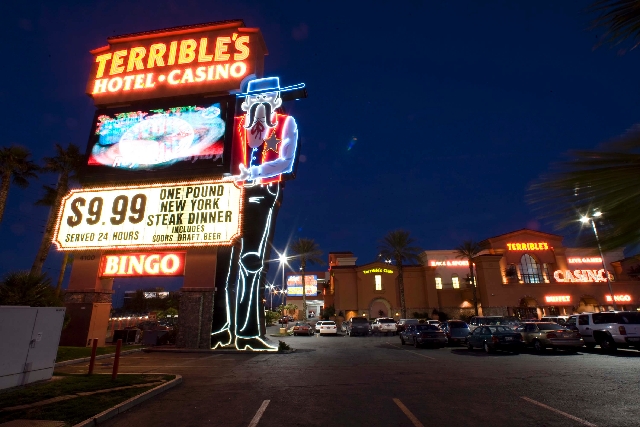Z Capital gets OK to expand position in Affinity Gaming
Chicago-based investment firm Z Capital Partners LLC has been given a green light to continue expanding its position as the largest shareholder in Affinity Gaming Corp.
Clark County District Judge Mark Denton filed a written ruling late Friday that at least temporarily prevents the company’s “poison pill” from going into effect. A widely used takeover defense, the poison pill would have unleashed a flood of new shares if Z Capital bought any more stock on its own, diluting its position from 30.4 percent to about 5 percent.
The order granting the preliminary injunction against the poison pill comes against the backdrop of Affinity Gaming’s annual meeting set for May 14. Z Capital has nominated two people to sit on the seven-member board.
However, Denton denied Z Capital’s request to prevent the company from instituting more stringent qualifications for board members.
In a statement, Z Capital said, “We believe this decision vindicates the rights of the company’s shareholders. ... We will continue to seek to protect the interests of all Affinity shareholders and look forward to a final resolution on all of these issues.”
The lawsuit that Z Capital filed encompasses a much broader attack on Affinity’s corporate reorganization late last year.
In a hearing last week, attorneys for Affinity argued that the poison pill was necessary to prevent Z Capital from buying practical control of the company without paying a control premium. Typically, a takeover bid for entire company comes at a price higher than recent trades, reflecting the extra value to the buyer of gaining complete ownership in one transaction.
While Z Capital has expressed an interest in boosting its stake, it has not made a takeover bid.
Affinity owns the two Terrible’s casinos in the valley, the three in Primm and several others elsewhere in the country.
While poison pills are valid in Nevada, Denton placed greater weight on Affinity’s history. When the company emerged from the Chapter 11 bankruptcy of Herbst Gaming in late 2010, there was no poison pill in the corporate bylaws. As a result, the corporate reorganization late last year that included the poison pill changed the rights held by shareholders, Denton wrote in his ruling.
This meant that Z Capital has a “reasonable probability” of showing that the corporate reorganization instituted late last year improperly included the poison pill.
Z Capital, which specializes in buying into financially struggling companies, purchased Herbst debt that was converted into Affinity stock by the Chapter 11 reorganization plan and covered by the pre-poison pill bylaws. At one point, Z Capital owned about 20 percent, but subsequently spent nearly $80 million to lift its stake to 30.4 percent.
The reorganization last year also said that the company could deny people board seats if it found them to be “unsuitable” under Nevada gaming law. Previously, Affinity reserved an unsuitability judgment solely to gaming regulators.
Unlike a poison pill designed to take effect automatically, Denton wrote, the unsuitability provision could be fixed if problems arose.
Contact reporter Tim O’Reiley at toreiley@reviewjournal.com or 702-387-5290.




























